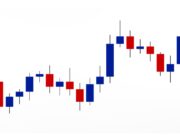Market noise is relentless. Financial headlines scream about the same handful of stocks while important opportunities—the kind that can meaningfully impact your portfolio—often fly completely under the radar.
That’s exactly why we publish this watchlist each week.
While most investors are distracted by mainstream narratives, we’re digging through earnings transcripts, analyzing technical setups, and monitoring institutional money flows to identify companies at potential inflection points. Our focus isn’t on what’s already priced in, but rather on what the market hasn’t fully appreciated yet.
Each week, we spotlight three stocks that merit your attention. We focus on opportunities where timing, valuation, and catalysts align to create potentially favorable entry points.
Our rigorous analysis goes beyond surface-level metrics to identify opportunities that most retail investors don’t have time to uncover. Each pick comes with clear reasoning, specific triggers to watch for, and a compelling risk-reward profile designed to help you make more informed investment decisions.
Here’s what caught our eye this week:
Amazon (AMZN)
Amazon’s true value proposition for investors has fundamentally shifted from its well-known e-commerce operations to its cloud computing dominance. Trading at around $206 per share, the company’s Amazon Web Services (AWS) division now accounts for a remarkable 63% of total operating profits despite generating only 19% of overall revenue. What makes this dynamic particularly compelling is AWS’s superior financial profile – delivering 17% year-over-year revenue growth with an impressive 39% operating margin, far outpacing the North American e-commerce segment’s 8% growth and modest 6.3% margin.
The cloud computing segment stands at a critical inflection point driven by two powerful growth catalysts. First, the ongoing migration of enterprise computing resources from on-premises infrastructure to cloud environments represents a multi-year tailwind that should persist for at least another decade. Second, the artificial intelligence revolution has created significant new demand for cloud computing resources as companies seek to train proprietary AI models without investing in expensive dedicated hardware. These dual growth drivers have positioned the global cloud computing market for explosive expansion, with industry research projecting growth from approximately $750 billion in 2024 to $2.3 trillion by 2030.
For investors, this structural shift in Amazon’s profit engine necessitates a fundamental reframing of how to evaluate the company’s performance. Rather than focusing solely on top-line revenue growth, which is diluted by the mature e-commerce segments, attention should center on operating profit growth – which has substantially outpaced revenue expansion in recent quarters. Perhaps most attractive from an investment perspective is AWS’s insulation from tariff concerns that have impacted many other technology companies with significant overseas manufacturing dependencies. As cloud computing becomes an increasingly critical component of global business infrastructure, Amazon’s leadership position through AWS creates a compelling investment case that extends well beyond its e-commerce roots.
IonQ (IONQ)
IonQ has emerged as a frontrunner in the quantum computing race, establishing strategic partnerships with technology giants while maintaining a technological edge through its proprietary trapped-ion architecture. Trading at around $35 per share with a market capitalization of approximately $9 billion, the quantum computing pioneer has positioned itself at the center of what could be the next major computing paradigm shift. What makes IonQ particularly compelling is its unique distinction as the only quantum hardware provider available across all three major cloud platforms – Amazon Web Services, Microsoft Azure, and Google Cloud – giving it unparalleled market access while validating its technological approach.
The company’s trapped-ion quantum architecture offers distinct advantages over competing approaches, delivering faster processing capabilities with a more scalable error correction process that requires the lowest overhead in the industry. This technological edge has attracted an impressive roster of strategic partners spanning multiple sectors: South Korean telecommunications leader SK Telecom, Japanese conglomerate Toyota Tsusho, U.S. defense contractor General Dynamics, and semiconductor powerhouse Nvidia. These partnerships not only validate IonQ’s technology but also create multiple commercialization pathways across diverse industries and geographies.
While quantum computing is often viewed as a future technology, IonQ is already generating revenue through its Forte Enterprise system while targeting a projected addressable market of $87 billion by 2035. The technology’s potential applications span critical fields including encryption, drug discovery, and financial modeling – areas where quantum advantages over classical computing could create substantial economic value. For investors seeking exposure to the quantum computing revolution with a company that has demonstrated both technological leadership and commercial traction, IonQ presents a unique opportunity to participate in what may become one of the most transformative computing advances of the next decade.
Taiwan Semiconductor (TSM)
Taiwan Semiconductor has solidified its position as the critical infrastructure provider powering the artificial intelligence revolution, with its dominance in advanced chip manufacturing creating a virtually unmatchable competitive moat. Trading at around $194 per share, the world’s leading semiconductor foundry has captured an impressive 67% market share in the contract manufacturing space as of late 2024. What makes TSM particularly attractive at current levels is the combination of its rapid growth trajectory – with Q1 2025 revenue surging 42% year-over-year to almost $26 billion – and a relatively modest valuation multiple of 25 times earnings despite its market-leading position and technological edge.
The company’s technological leadership has become so pronounced that even Intel, which historically manufactured its own chips, now relies on TSM for its most advanced designs. This technological superiority has made TSM the favored manufacturing partner for the AI ecosystem’s most critical companies including Nvidia, Apple, and Qualcomm. The company isn’t resting on its achievements either – it plans approximately $40 billion in capital expenditures for 2025 to expand production capacity and meet surging demand for advanced semiconductor solutions. This includes strategic investments in Arizona facilities that address geopolitical concerns by diversifying manufacturing beyond Taiwan.
Looking ahead, TSM stands to benefit from two significant tailwinds: overall semiconductor industry growth projected at 8% CAGR through 2030, and the explosion in AI chip demand estimated at a 29% CAGR over the same period. With comprehensive income increasing 47% in the first quarter of 2025 to nearly $12 billion as operating expenses grew more slowly than revenue, TSM’s operating leverage creates a powerful earnings growth dynamic. Despite geopolitical tensions that have sometimes pressured the stock, the company’s indispensable position in advanced chip manufacturing – particularly for AI applications – combined with its reasonable valuation creates a compelling opportunity for investors seeking exposure to the semiconductor industry’s most critical enabler.





